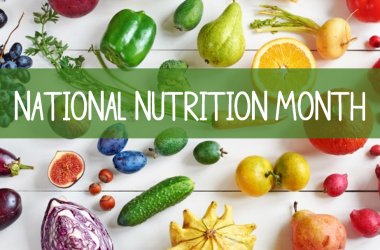The food choices you make may have an affect on the way your body holds onto weight, especially those unwanted, stubborn pounds. While you may understand what changes you need to make in order to enjoy a healthier life, such as choosing low carb, high fiber, low fat, lean protein foods, drinking plenty of water, carving out time for meal planning or committing to an exercise routine, you may not be executing these plans in the most effective way possible to reach your goals.
Putting your health and wellness first should be a top priority in your investment portfolio. Even with all the money in the world, investing in our health is the most important asset. At CardioMender, MD we can help you become independently healthy and wealthy this Independence Day!
Interpreting the Nutrition Facts Label
Understanding the nutrition facts label on the back of every food or drink product can help you make healthier eating choices. The label breaks down the amount of calories, carbohydrates, fat, fiber, protein and vitamins per serving. By understanding the nutrition facts label, you can make educated choices about what you eat and tailor other options to fit your needs and desires while on a weight loss plan.
At CardioMender, MD our weight loss plan focuses on your eating habits. Before you grab anything in sight at the grocery store, we encourage our patients to look at the nutrition label and look for food products that contain low fat, high fiber, low net carbs, and moderate amount of protein per serving.
Know How to Recover
When faced with having to make a planned deviation, it is essential that you know how best to recover. We understand that things come up, whether that be an event you have to go to or vacation. If you know how to recover properly, you can easily get back to your weight loss plan as soon as possible.
On the day that deviations occur, it is best to minimize fruits or fats from the rest of your meals that day and choose low glycemic veggies and lean proteins. It may be in your best interest to potentially commit to a couple days of Phase 1 of your CardioMender, MD Acute Weight Loss Plan, which recommends protein only provided if you do not have Type-2 diabetes. Eating a nutritionally balanced diet can help boost your metabolism, reduce appetite, reduce cravings and help you burn off any extra pounds faster.
Understand Glycemic Index
Becoming educated on how the body processes different types of foods can help you become more aware of which foods to avoid. It is vital that you understand glycemic index (GI), which evaluates rising glucose rates after eating a particular food. High glycemic foods, such as chips, popcorn, white bread, white rice, and doughnuts, have a relatively rapid absorption of glucose, causing a quick spike in “sugar,” which triggers a surge in insulin and causes glucose to fall rapidly. This is so important because diets high in glycemic foods generally result in overeating and weight gain, which increases the risk of diabetes, cardiovascular disease, and obesity.
As a general rule, we encourage our patients to avoid processed foods, such as refined grains, sugary drinks, dried fruits and refined sugary cereals, as these food products tend to have a higher glycemic index than recommended as part of a healthy diet.
Also, it is vital to recognize that certain “healthy” foods are not conducive to weight loss. For example, carrots and bananas are rich in vitamins but high in sugar, as avocados and nuts may be nutritious but high in fat.
We Can Help You!
Turn to CardioMender, MD Weight Loss Specialists to help you become educated and stay in control in order to live Independently Healthy! We have all the resources you need to become the best version of yourself and achieve optimal health and wellness.



